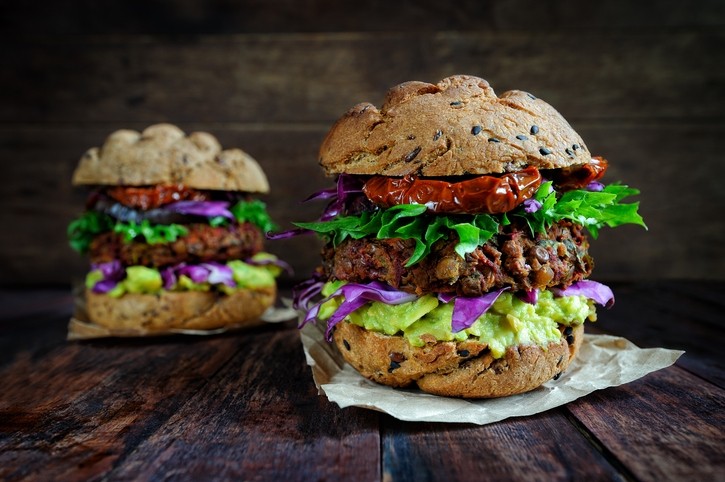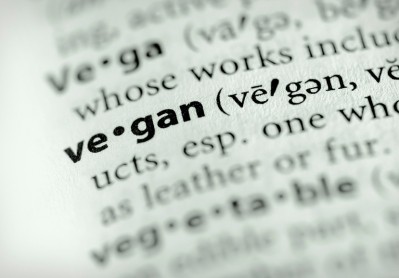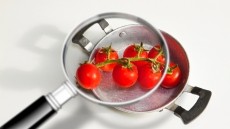Vegetarian Butcher slams Dutch food authority for double standards over 'misleading' meat name ban

The Dutch Food and Consumer Product Safety Authority (NVWA) has ordered the Vegetarian Butcher to change the names of products such as chicken chunks and fish-free tuna on the grounds they are misleading.
The company has until March 2018 to change its products or it will face a fine.
‘Totally disproportionate'
Co-founder of the firm Niko Koffeman believes The Vegetarian Butcher is being unfairly singled out. “We were summoned by the NVWA to change the names of almost all our products, just because they got one complaint from a consumer who says our product names misled him.
“We don't have the text of the complaint yet, but it's totally disproportionate to ask a producer to change the name of all of his products just because of the complaint of one consumer who we don't even know.
“There are so many vegetarian products on the market that call themselves ‘sausage’, ‘schnitzel’ or ‘chicken chunks’, we cannot believe a judge would agree with these double standards.”
FoodNavigator contacted the NVWA but did not receive a response in time for publication of this article.
This isn’t the first time The Vegetarian Butcher has fallen foul of the NVWA. In 2012, the authority told the firm the Dutch word for minced meat (Gehakt) was reserved for meat products only, and ordered it to change the name.
“We changed it to ‘Gehackt’ which means that we hacked the taste, structure, the looks and the nutritional value of the real thing. Now they say that's just a word game, but we honestly don't think so.”
The Hague-based company recently launched gehacktballetjes (‘hacked’ minced meatballs) with Unilever – “the first time in history that Unilever is cobranding its brands with a non-Unilever brand”, Koffeman added.
Bad for the brand?
“Nobody knows what it will do for our brand image if the NVWA tells all Dutch newspapers, journals etc that we are misleading consumers,” Koffeman said.
As of this week, however, its sales have grown by 30%. “Maybe a lot of the Dutch consumers want to buy a collector’s item before it's too late,” he added.
The issue, dubbed #schnitzelgate by Twitter users, has certainly gained a lot of attention. Writing on the subject in Dutch newspaper Volkskrant, campaign leader at Greenpeace Meike Rijksen thanked the NVWA for raising awareness of meat alternatives. “The path to the revolution is in full swing. That is good for the animals, for the environment and for us. So, NVWA, thanks for the fight!”
EVU: No danger of deception
The European Vegetarian Union (EVU) takes the position that traditionally well-known or ‘meaty’ names on vegan and vegetarian meat alternatives
“convey important information on what consumers can expect of a product”.
“There is no danger of deception [because] the vegetarian characteristic is communicated clearly on the packaging,” said public affairs officer at the EVU Jan Felix Domke.
According to Koffeman , it would be harmful for the firm if consumers actually mistook the products for genuine meat.
“We are the party who has the biggest interest in not confusing the consumers. It would be disastrous if any consumer should think that there is any meat or fish in our products.”
If you can’t beat ‘em, meat 'em in the middle
The NVWA has no jurisdiction in countries other than The Netherlands and so its ruling only affects Vegetarian Butcher products sold domestically. But the debate over what to call meat alternatives is growing in the EU, and in the eyes of the meat industry, vegetarian firms are profiting from their well-established names and denominations.
The association that represents processed meat manufacturers CLITRAVI recently asked the European Commission to ban plant-based products from using meat terms on packaging and advertising – protection that the dairy sector already has for terms like milk and cheese.
However, some meat companies are taking a different tack, seeing the plant-based movement as an opportunity to diversify their portfolios.
US manufacturer Tyson Foods has invested in Beyond Meat while Germany meat processor Rügenwalder Mühle said it wants at least 30% of the company’s sales to come from its expanding vegetarian range by 2019.
Last month, the Dutch Zwanenberg Food Group announced intentions to phase out meat products for vegetarian ones. It has set itself the target of seeing 50% of profits coming from non-meat products such as soups, snacks and sauces – a big change for the company considering 90% of its €400 million turnover comes from meat products.
Koffeman also said the firm has been making “big steps” in developing a vegan steak together with Unilever, flavour house Givaudan, Nutrition et Santé, Saturn and Meyn, one of the world's biggest manufacturers of chicken slaughter machines.

























